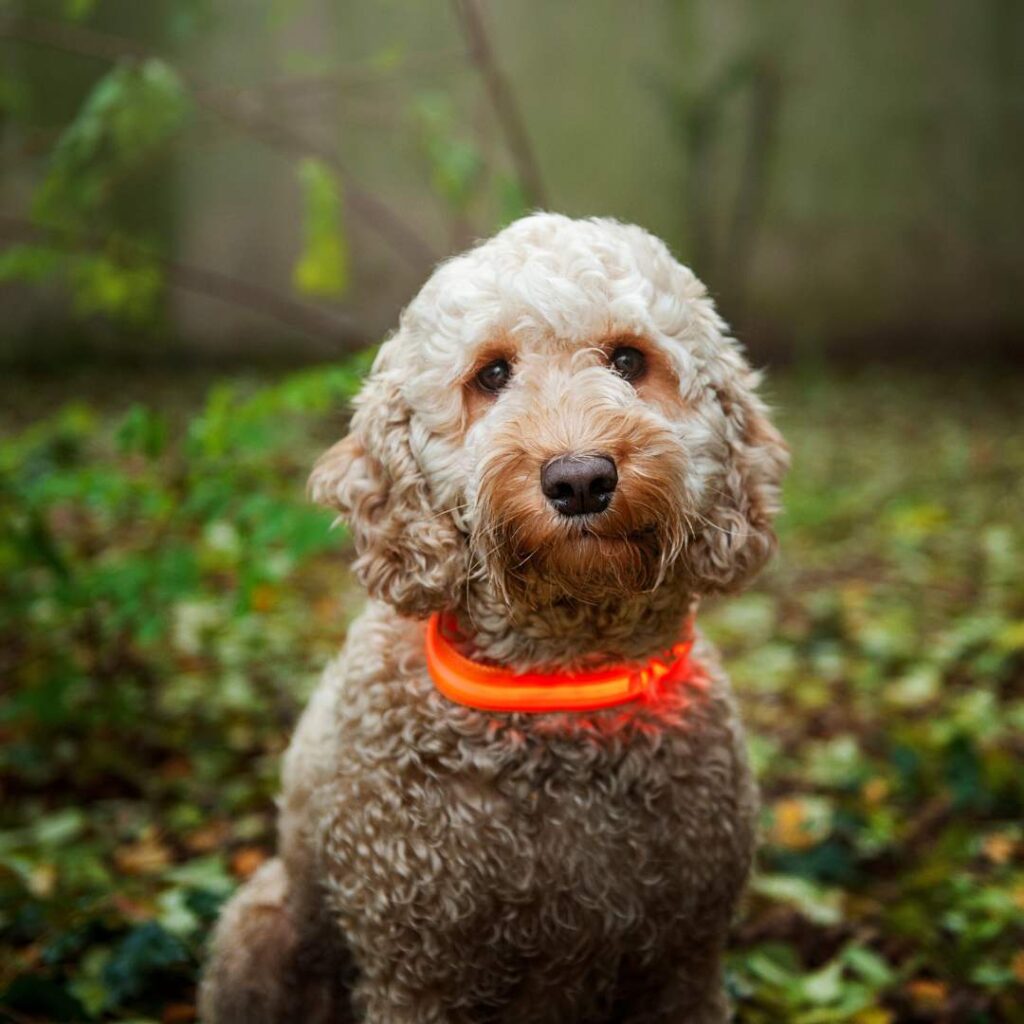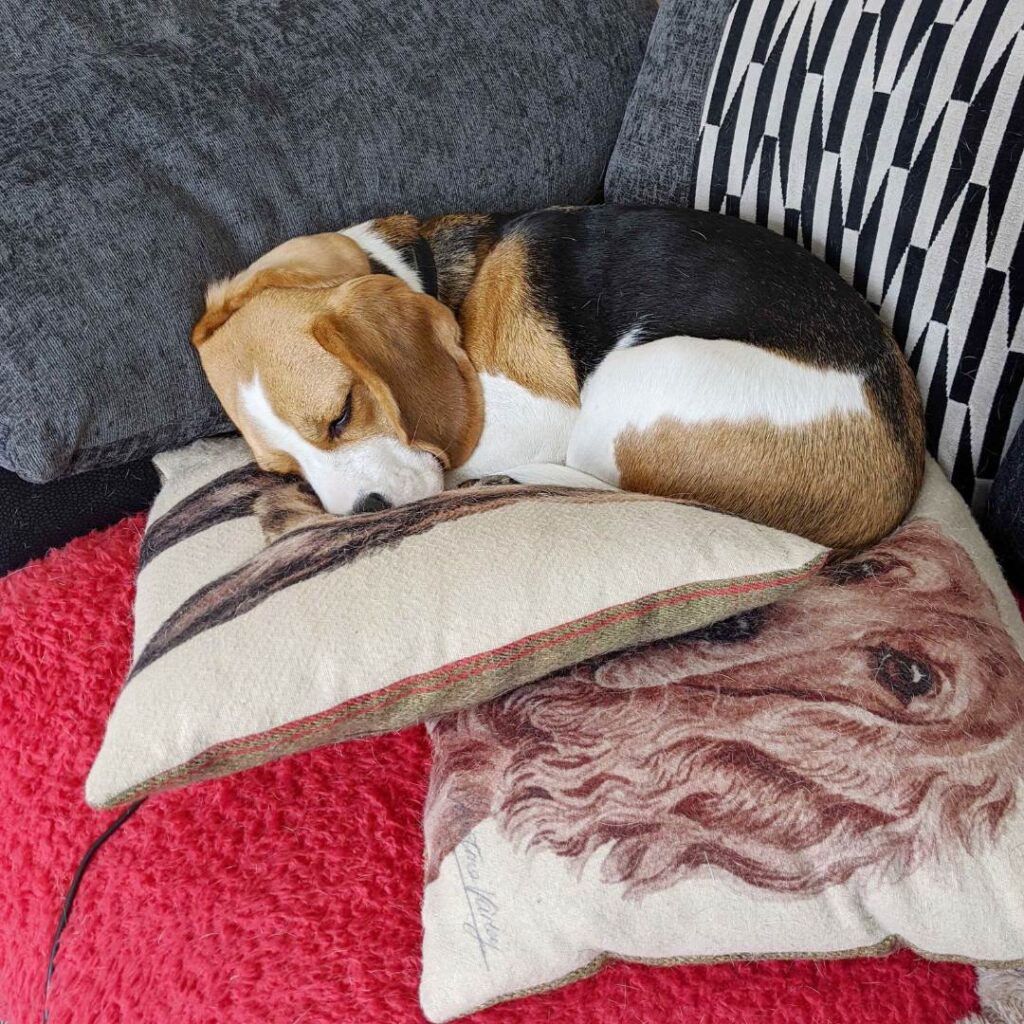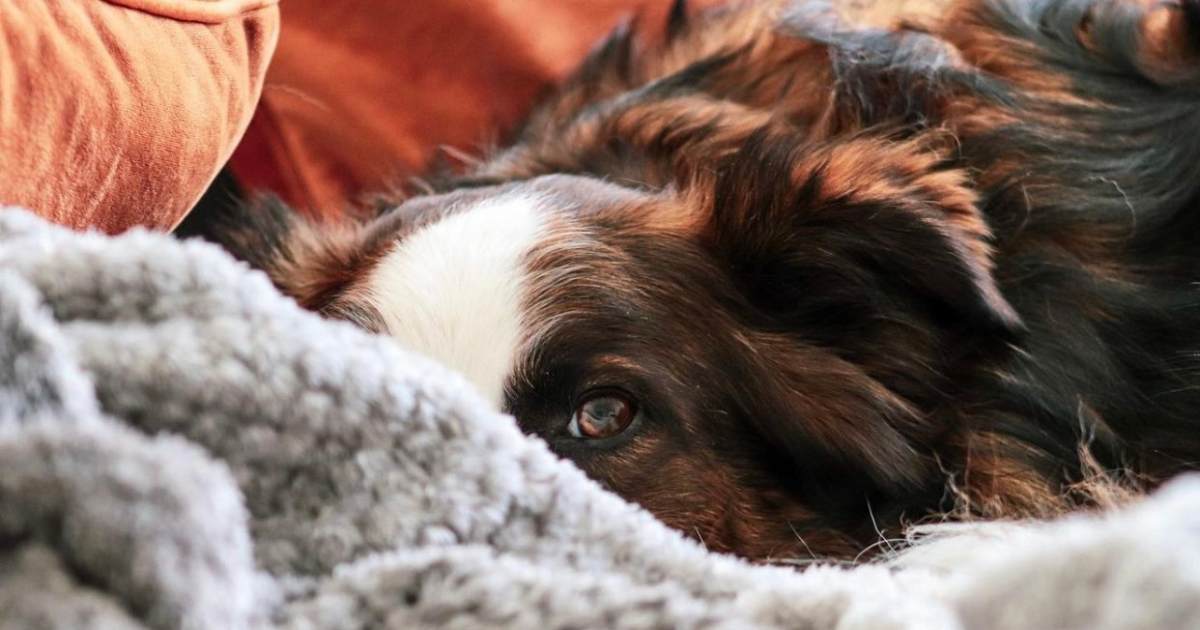The days are getting shorter, the weather cooler, wetter and windier – and with that comes more time in the dark for your dog. You might notice they’re barking more or seem a little nervous. This might lead you to wonder – is my dog afraid of the dark?
The short answer to this is probably no. But they may well be scared of what’s lurking in the dark.
What’s different in the dark for our dogs?
During the day, our dogs have a lot to occupy them. They’re surrounded by activity, sounds, and comings and goings. There’s games and walks and enrichment. And they have the security of you there to manage the environment and keep scary things at bay. You keep them safe. That’s your job.
But at night, when it gets dark, everything is different for your dog.
It’s quiet, with no distractions, and you’re asleep. This changes everything.
First of all, strange noises are much more obvious. Your neighbour getting up to go to the loo, people running appliances or heating, vehicles or people outside in the otherwise silence of the night. Even a mouse creeping past the door can wake a dog whose hearing is much more sensitive than ours.
So it’s not really the dark your dog is afraid of, but every sound becomes magnified, which can seem scary.
Fun fact: they can hear things four times further away than we can!

Put yourself in their shoes paws
Our dogs aren’t that different from us really. We’re not afraid of the dark, but we can be more jumpy at night.
Imagine you’re asleep – and you hear a strange noise coming from the kitchen. You’re instantly awake and on high alert listening for any more sounds, trying to work out what it could be.
Your mind will straightaway jump to thoughts of intruders or some unknown threat. If you’re alone, you might search for an object to defend yourself or reach for your phone. If you’re with a partner, you’ll probably wake them up. Strength in numbers.
Our dogs, often descended from those specifically designed to alert us to intruders and possible threats, will frequently do the same thing. And this isn’t just the big guarding breeds – many of our small companion breeds were created as monastery or temple alarms or as ladies’ protectors. And terriers who’re often both reactive and like the sound of their own voices, need little excuse to wake a household!
Strange, scary, or unexpected noises give a dog few choices if you’re not around or awake. Either they can be so secure and chilled they just ignore it and go back to sleep -congratulations on your good night’s sleep! Or they can decide you need protecting and they need to see this intruder off immediately. Or they can get anxious and fearful, and so need your help.
Both of the last two are noisy.
There are some things that’ll make this a more likely response or a more dramatic one. There are ways to prevent or limit this, especially when it becomes problematic – either to you, your neighbours, or because it’s causing your dog stress and anxiety. But at the end of the day, it’s very much a case of a dog being a dog.
In addition, for many dogs, their owner is everything.
We spend a lot of time, energy and love creating a strong and secure attachment with our dogs. And we also develop a bond where they look to us to see how to behave and can relax knowing we’ll look after them and keep them safe.
At night, when asleep, maybe even in a different room, an owner isn’t there to reassure their dog, to tell them what to do or how to behave and to keep them safe. This can result in a dog feeling less confident (especially for those already lacking confidence or with separation related issues) and potentially more fearful. The end result? A dog who’s way more worried about things that go bump in the night.
Again, it’s not really the dark the dogs are afraid of, but without you there to reassure them they’re more likely to jump.
Lastly, for some dogs, especially those who may be under-exercised or under-enriched, eight hours with nothing to do can get really boring. So hey, why not find an excuse to have a good bark!

How to reduce the nighttime barks or anxiety
- Consider changing where your dog sleeps. If they currently sleep somewhere they can hear neighbours, passers-by, appliances or nocturnal wildlife, move them somewhere quieter where these noises can’t be heard or are less obvious.
- Mask noises with white noise or quiet music.
- Close curtains (or put up curtains) if your dog can see things moving past the window, at any height.
- If your dog sleeps in a different room from you, consider moving them into your bedroom. The security your presence will give them might be all that’s needed to give them the confidence to settle down and sleep without being on high alert all the time.
- Make sure your dog is getting enough exercise and enrichment during the day to help them sleep soundly at night. And make sure they have a chance to go to the toilet before bedtime. A full bladder will keep a dog awake – and more likely to hear strange noises (or just bark to get you to take them out).
If all this fails, or if your dog lacks confidence in other areas too, consult an accredited behaviourist who can help you develop a behaviour modification plan to help you both get a good night’s sleep.

